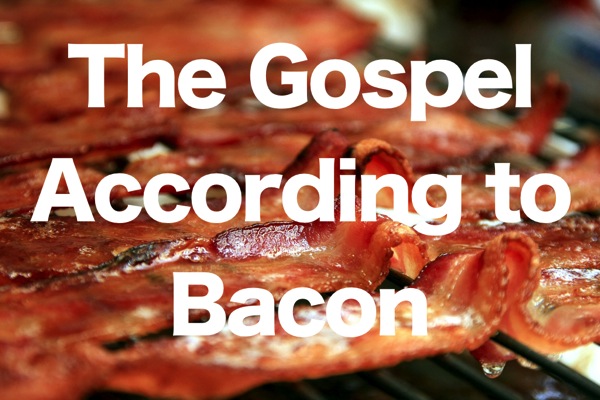 Bacon is proof that God loves us. Seriously. Imagine what life would’ve been like in the days of the Old Testament. The smell of fresh cooked bacon floating through the air as the Israelites camped out in the wilderness… never an option. The pigs that jumped off the cliff because they were possessed by demons… imagine all the quality meat that could’ve been had if Jesus just said, “Let’s eat." Maybe we shouldn’t be surprised that the Israelites complain about the manna and want meat instead. God’s people just want themselves some bacon.
Bacon is proof that God loves us. Seriously. Imagine what life would’ve been like in the days of the Old Testament. The smell of fresh cooked bacon floating through the air as the Israelites camped out in the wilderness… never an option. The pigs that jumped off the cliff because they were possessed by demons… imagine all the quality meat that could’ve been had if Jesus just said, “Let’s eat." Maybe we shouldn’t be surprised that the Israelites complain about the manna and want meat instead. God’s people just want themselves some bacon.
The reason they couldn’t eat bacon came from some simple rules in Leviticus regarding their dietary laws. Leviticus includes all kinds of rules about how God’s people should dress, what they can or cannot eat, and all kinds of details about how to properly make a sacrifice.
"Nevertheless, among those that chew the cud or part the hoof, you shall not eat these: The camel, because it chews the cud but does not part the hoof, is unclean to you. And the rock badger, because it chews the cud but does not part the hoof, is unclean to you…And the pig, because it parts the hoof and is cloven-footed but does not chew the cud, is unclean to you.” - Leviticus 11:4-5, 7
This was the rule for thousands of years. No bacon. Bacon came from pigs and pigs were unclean, therefore bacon was off the table, literally.
If you are like me, you obviously don’t follow this rule. Why? What happened that changed a rule that was around for thousands of years? Bacon wasn’t Kosher for the Jews, and Christians believe the Old Testament too, so what happened that changed the rules.
Jesus happened.
Two Kinds of Laws
In the Old Testament, there are two types of the law. We see the moral law (or natural law) and also the ceremonial law. The moral law are the laws that we see throughout Leviticus and in other books that could be summed up simply in a list like the 10 Commandments. And then there is the ceremonial law, which are the laws that include instructions on the ceremonies. It includes things like sacrifices, circumcision, dietary restrictions, the feasts and festivals, and so on.
The moral law are the laws connected to God’s nature. These types of laws, like do not murder, are universal and timeless. In fact, even before God gave the command, “Do not murder,” it was wrong to murder. These laws are timeless because they are woven into the way that God has created the world to work. These are the same laws that the apostle Paul would argue are “written on our hearts.” Bacon is not one of these laws, bacon (and all the dietary laws) are a part of the ceremonial. The ceremonial law is just a shadow of something better. The restrictions, the sacrifices, and the festivals are good things. But they are only good because of what they point to. They are significant, but they aren’t the main thing. The shadows are good, but the substance is much better.
The thing that these ceremonial laws point to: Jesus.
Jesus is what these laws point forward to and Jesus fulfills all that these laws could do. And in fulfilling the law, Jesus brings about a new, better covenant.
"But as it is, Christ has obtained a ministry that is as much more excellent than the old as the covenant he mediates is better, since it is enacted on better promises. For if that first covenant had been faultless, there would have been no occasion to look for a second. In speaking of a new covenant, he makes the first one obsolete. And what is becoming obsolete and growing old is ready to vanish away.” - Hebrews 8:13
Enter the new covenant. Now as people start following Jesus in the early days, people don’t immediately give up all their rules that they had previously centered their lives around. Jesus and his followers celebrated the passover, they observed the Sabbath, and they followed the dietary laws. The members of the early church were good Jews and kept the Jewish law and didn’t eat bacon… for a while.
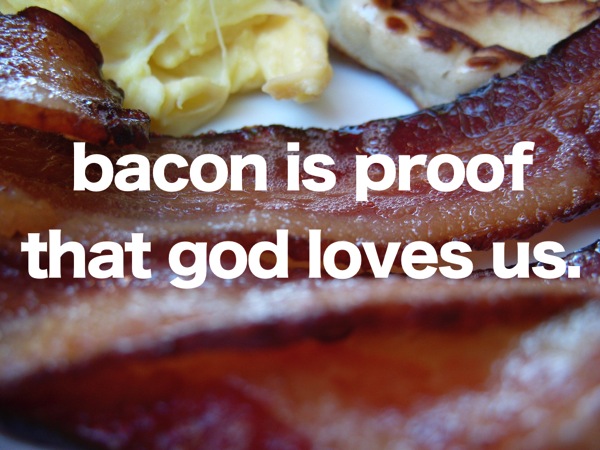
Go and make disciples of all nations… and eat bacon
Jesus’ first followers were Jews, but this message of the death and resurrection wouldn’t be a message only for the Jews. God wanted to make this clear. When Jesus came and gave his life to be a sacrifice once and for all, that’s a message for everybody. The news that Jesus came as the high priest who sits down at the right hand of God declaring, “It is finished” is not just a news for a nation, but it’s news for all people.
And so Peter is going to share this Good News with a group of people who aren’t Jews. And when Peter goes up to the roof to pray, he gets hungry and has this crazy vision.
"In it were all kinds of animals and reptiles and birds of the air. And there came a voice to him: “Rise, Peter; kill and eat.” But Peter said, “By no means, Lord; for I have never eaten anything that is common or unclean.” And the voice came to him again a second time, “What God has made clean, do not call common.” - Acts 10:12-15
Peter is a good Jewish boy and everything he knows is being challenged. Clean and unclean foods. Feasts and festivals. The ritual washings. Circumcision. Peter all of the sudden is forced out of everything he knows for the sake of the Gospel. Peter already knows the Gospel is for all people, but he quickly is faced with the reality that his dietary restrictions shouldn’t be what keeps someone from hearing the Good News.
"So Peter opened his mouth and said: “Truly I understand that God shows no partiality, but in every nation anyone who fears him and does what is right is acceptable to him. As for the word that he sent to Israel, preaching good news of peace through Jesus Christ (he is Lord of all) you yourselves know what happened…To him all the prophets bear witness that everyone who believes in him receives forgiveness of sins through his name.” - Acts 10:34-37, 43
The Gospel is for all people. It’s not reserved for the people who follow the right rules, it’s not reserved for a certain nation or tribe, it’s not reserved for the people who are intellectually superior, and it’s not reserved for those who have abstained from bacon. The Gospel is the Good News for all people. And for Peter this means giving up everything that he had grown to know for the sake of bringing the Gospel to a people who had not yet heard it.
Peter is told by God that the foods he once knew to be unclean were no longer unclean. And in that moment, thus saith the Lord, “Eat bacon.” And this is why you and I can eat bacon. Because in the New Covenant, foods were declared clean. The dietary laws of the Old Testament were no longer necessary because Jesus had come and because he came for all people
Jesus came. We eat bacon.
Photo Credit: dave77459, misterjt
 There was a day when the church was known for its artists. Da Vinci famously painted the Last Supper, Michaelangelo painted the Sistine Chapel, and J.S. Bach wrote music influenced by his Christian faith. In not quite as distant history, C.S. Lewis and J.R.R. Tolkien wrote classic works influenced by their Christian faith. Unfortunately, when we think of the church in today’s culture, we do not likely think of art. And this is not about the buildings; because although our building may no longer be painted or built the same way, our churches are still full of music, design, film, performance art, and writing.
There was a day when the church was known for its artists. Da Vinci famously painted the Last Supper, Michaelangelo painted the Sistine Chapel, and J.S. Bach wrote music influenced by his Christian faith. In not quite as distant history, C.S. Lewis and J.R.R. Tolkien wrote classic works influenced by their Christian faith. Unfortunately, when we think of the church in today’s culture, we do not likely think of art. And this is not about the buildings; because although our building may no longer be painted or built the same way, our churches are still full of music, design, film, performance art, and writing.
 I have bad eyes. I have since high school, maybe longer. I’m also stubborn, so although I have trouble seeing things at a distance, I still don’t wear glasses or contacts. Having bad eyesight creates some problems. In school, it created a problem seeing the board. That was actually how I discovered I had bad eyes; my classmates could clearly make out the dates in history class while I struggled to figure out what was being written down. I can see well enough to drive safely, but if I have to pick out a street name in an area I have never been, it is not an easy task.
I have bad eyes. I have since high school, maybe longer. I’m also stubborn, so although I have trouble seeing things at a distance, I still don’t wear glasses or contacts. Having bad eyesight creates some problems. In school, it created a problem seeing the board. That was actually how I discovered I had bad eyes; my classmates could clearly make out the dates in history class while I struggled to figure out what was being written down. I can see well enough to drive safely, but if I have to pick out a street name in an area I have never been, it is not an easy task. There are certain phrases and stories that within Christianity often get treated as though they were Scripture. Like the story of the
There are certain phrases and stories that within Christianity often get treated as though they were Scripture. Like the story of the  Theology is often seen as something reserved for academics and seminarians. Part of the this is simply a misunderstanding of theology, but part of is also because of the way that Christians tend to talk about theology. As soon as we venture into theological topics, the conversation becomes lofty and out-of-reach. It quickly requires extensive biblical knowledge, a vast theological library, and excellent proof-texting abilities. The problem is this isn’t the way most of us want to think or talk about God.
Theology is often seen as something reserved for academics and seminarians. Part of the this is simply a misunderstanding of theology, but part of is also because of the way that Christians tend to talk about theology. As soon as we venture into theological topics, the conversation becomes lofty and out-of-reach. It quickly requires extensive biblical knowledge, a vast theological library, and excellent proof-texting abilities. The problem is this isn’t the way most of us want to think or talk about God.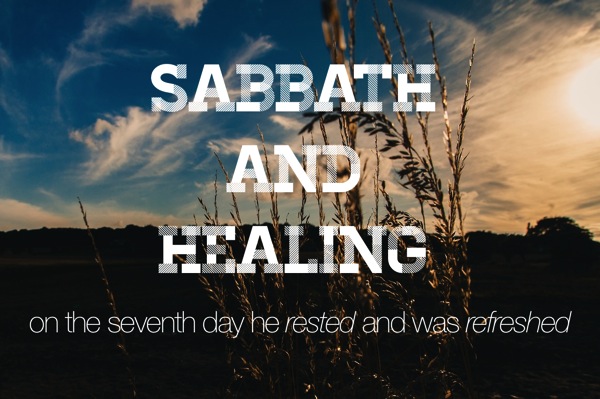 A friend of mine runs what are called ultra-marathons.
A friend of mine runs what are called ultra-marathons. We all know about St. Patty’s day, but very few of us know anything about the history behind the holiday. For most of us, our knowledge of the Saint Patrick’s day rarely extends beyond green clothing, lepurchauns, green beer, some Irish music, and the occasional shamrock shake. But, believe it or not, behind all that makes this holiday popular is a holiday rooted in Christian faith. Saint Patrick’s Day, or the Feast of Saint Patrick, is a celebration of the arrival of Christianity in Ireland. And more specifically, a celebration of the missionary, Saint Patrick.
We all know about St. Patty’s day, but very few of us know anything about the history behind the holiday. For most of us, our knowledge of the Saint Patrick’s day rarely extends beyond green clothing, lepurchauns, green beer, some Irish music, and the occasional shamrock shake. But, believe it or not, behind all that makes this holiday popular is a holiday rooted in Christian faith. Saint Patrick’s Day, or the Feast of Saint Patrick, is a celebration of the arrival of Christianity in Ireland. And more specifically, a celebration of the missionary, Saint Patrick. I love new things. When I got my new Macbook, their was a sense of excitement as I opened up the box and carefully removed the plastic over my shiny new piece of technology. Anytime an entrepreneur puts out a press release or makes a keynote announcing their innovations, I can’t help but be excited about the new possibilities. When an internet start-up launches a new social network, I am quickly intrigued. New is exciting. When brands, business, and individuals create, innovate, and push the boundaries, people get excited. Because innovation and creativity are exciting. We love new.
I love new things. When I got my new Macbook, their was a sense of excitement as I opened up the box and carefully removed the plastic over my shiny new piece of technology. Anytime an entrepreneur puts out a press release or makes a keynote announcing their innovations, I can’t help but be excited about the new possibilities. When an internet start-up launches a new social network, I am quickly intrigued. New is exciting. When brands, business, and individuals create, innovate, and push the boundaries, people get excited. Because innovation and creativity are exciting. We love new. 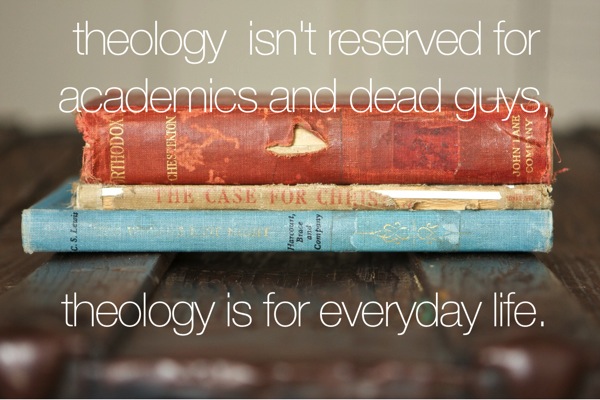 When most people think of
When most people think of  Bacon is proof that God loves us. Seriously. Imagine what life would’ve been like in the days of the Old Testament. The smell of fresh cooked bacon floating through the air as the Israelites camped out in the wilderness… never an option. The pigs that jumped off the cliff because they were possessed by demons… imagine all the quality meat that could’ve been had if Jesus just said, “Let’s eat." Maybe we shouldn’t be surprised that the Israelites complain about the manna and want meat instead. God’s people just want themselves some bacon.
Bacon is proof that God loves us. Seriously. Imagine what life would’ve been like in the days of the Old Testament. The smell of fresh cooked bacon floating through the air as the Israelites camped out in the wilderness… never an option. The pigs that jumped off the cliff because they were possessed by demons… imagine all the quality meat that could’ve been had if Jesus just said, “Let’s eat." Maybe we shouldn’t be surprised that the Israelites complain about the manna and want meat instead. God’s people just want themselves some bacon.
 If you’ve ever used a smart phone for some sort of navigation, you’ve likely encountered the blue dot. You know, the indicator that shows up on top of the map you are looking at as a way to make it clear to you, “You are here.” The blue dot shows you at any given moment the exact coordinates of your location. It tells you the city you are in, the street you are traveling on, the neighborhood you are entering, and the driveway you are approaching. The blue dot makes it very clear that, “You are here."
If you’ve ever used a smart phone for some sort of navigation, you’ve likely encountered the blue dot. You know, the indicator that shows up on top of the map you are looking at as a way to make it clear to you, “You are here.” The blue dot shows you at any given moment the exact coordinates of your location. It tells you the city you are in, the street you are traveling on, the neighborhood you are entering, and the driveway you are approaching. The blue dot makes it very clear that, “You are here."

 In the minds of many, being a Christian is equated with a set of rules. For many being a Christian means, “Do this,” or “Don’t do that.” Christianity becomes
In the minds of many, being a Christian is equated with a set of rules. For many being a Christian means, “Do this,” or “Don’t do that.” Christianity becomes 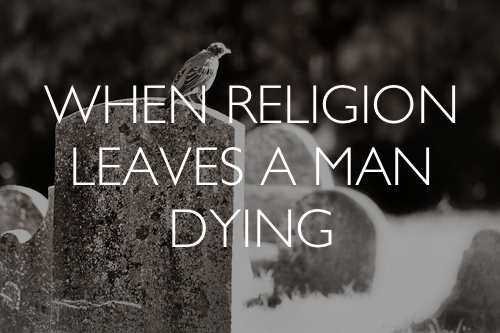
 Walt Disney said, “That’s the trouble with the world, too many people grow up.” When we are kids, we can’t wait to get older. When we have kids of our own, we desperately want to cherish the moments we have before they grow up. There’s something incredible about seeing the joy, the innocence, the creativity of a child as they play and imagine. But there are also traits that we hope don’t stick around forever - things like the potty training, the tantrums, needing to have their food mashed up and spoon-fed.
Walt Disney said, “That’s the trouble with the world, too many people grow up.” When we are kids, we can’t wait to get older. When we have kids of our own, we desperately want to cherish the moments we have before they grow up. There’s something incredible about seeing the joy, the innocence, the creativity of a child as they play and imagine. But there are also traits that we hope don’t stick around forever - things like the potty training, the tantrums, needing to have their food mashed up and spoon-fed. I don’t understand runners. I understand playing a sport and being punished with running, but running simply for the fun of it is beyond me. And runners will often talk about the way it makes them feel afterwards - they talk about the adrenaline of the “runner’s high” - this has not ever been my experience. Running typically makes me feel like I would rather die soon. In the few times that I’ve tried to take up running, I’ve ended my running by walking into my house, with my heart pounding through my chest, and thinking, “What in the world did I do that for?"
I don’t understand runners. I understand playing a sport and being punished with running, but running simply for the fun of it is beyond me. And runners will often talk about the way it makes them feel afterwards - they talk about the adrenaline of the “runner’s high” - this has not ever been my experience. Running typically makes me feel like I would rather die soon. In the few times that I’ve tried to take up running, I’ve ended my running by walking into my house, with my heart pounding through my chest, and thinking, “What in the world did I do that for?"